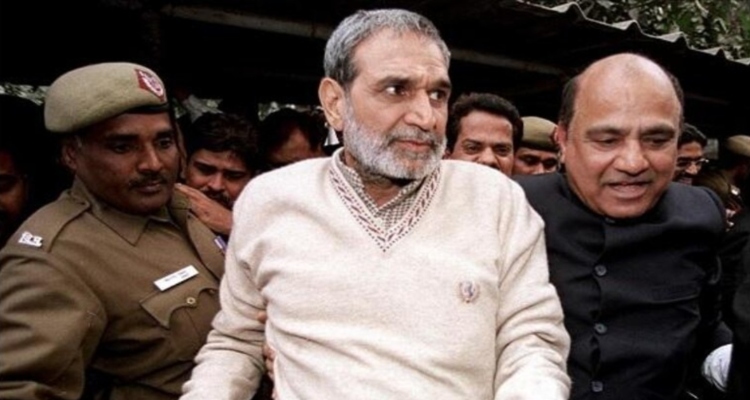
Delhi’s Rouse Avenue court on Friday reserved its ruling on the sentencing of former Congress leader Sajjan Kumar following his conviction in a 1984 anti-Sikh riots case.
The court announced that the decision regarding the quantum of punishment would be delivered on February 25.
During the proceedings, a complainant—whose husband and son were brutally murdered by a mob allegedly incited by Kumar—petitioned the court for the imposition of the death penalty. This plea was formally presented through legal counsel before Special Judge Kaveri Baweja, who subsequently postponed the sentencing pronouncement.
Case Against Sajjan Kumar
Sajjan Kumar, a former Member of Parliament representing the Indian National Congress, was convicted by the Delhi High Court on February 12, 2025, in a double homicide case tied to the 1984 anti-Sikh riots. His conviction is a watershed moment in the prolonged legal struggle to hold perpetrators accountable for the communal violence that erupted in the aftermath of Prime Minister Indira Gandhi’s assassination.
The prosecution successfully demonstrated beyond a reasonable doubt that Kumar orchestrated and led a violent mob responsible for the killings of S. Jaswant Singh and his son, S. Tarundeep Singh, in Raj Nagar, Delhi, during the riots. With this verdict, Kumar now faces either life imprisonment or capital punishment.
The court previously scheduled sentencing arguments for February 18, underscoring the seriousness of the charges and the meticulous legal scrutiny involved.
Senior advocate H.S. Phoolka, representing the complainant, emphatically advocated for the death penalty, contending that “the accused, as a leader of the violent mobs, incited others to commit acts amounting to genocide and crimes against humanity, including premeditated murder. He deserves nothing less than capital punishment.”
The court has directed Kumar’s legal counsel to submit a written argument within 2 days to ensure a comprehensive judicial assessment before determining the final sentence.
The forthcoming ruling on February 25 is poised to set a significant legal precedent in adjudicating accountability for the atrocities committed during the 1984 riots.
Read More: Supreme Court, Delhi High Court, States High Court, International




